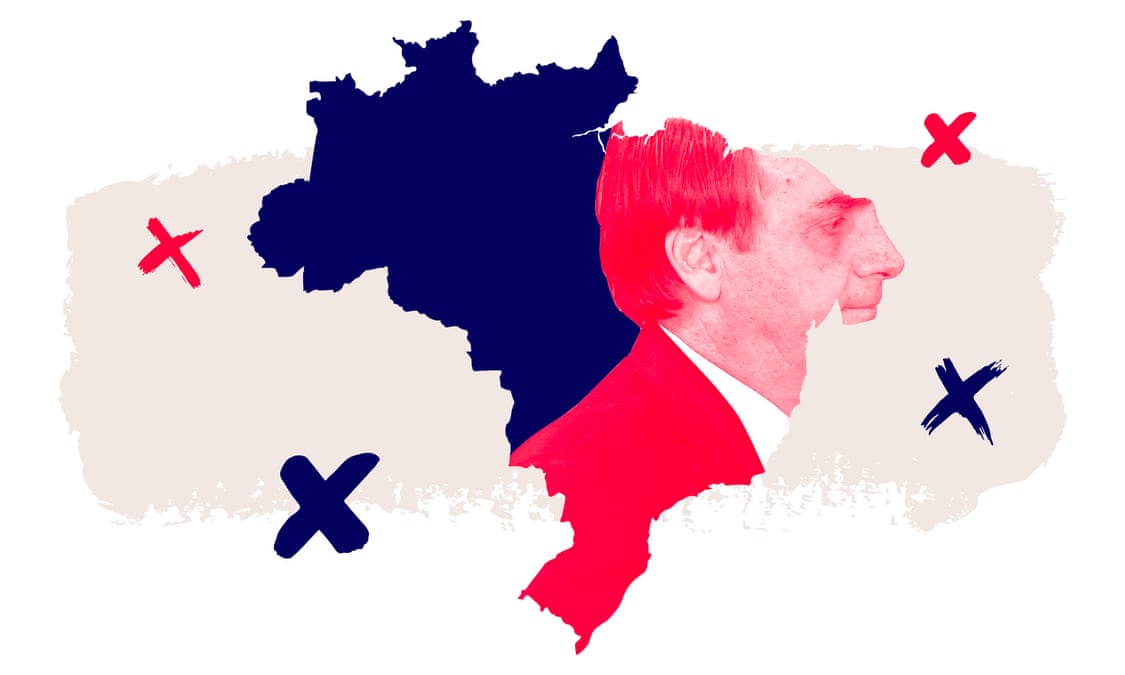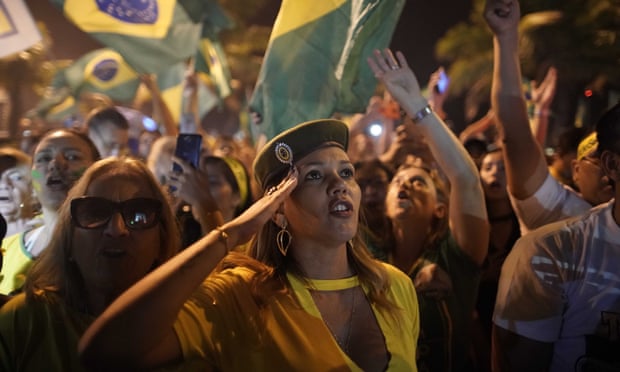- UID
- 20
- Online time
- Hours
- Posts
- Reg time
- 24-8-2017
- Last login
- 1-1-1970
|
|
━━━━━━━━━━━━━━━━━
Both nations plagued by political corruption that has eroded faith in democratic institutions.

Jair Bolsonaro, the president of Brazil. Illustration: Guardian Design
▼ The Nova América mall is a gleaming oasis in Rio de Janeiro’s chaotic, densely packed, blue-collar suburbs. It is in a stronghold of the far-right president, Jair Bolsonaro, and its customers shed some light on why more Brazilians hold strongly populist views than citizens of any other country.
“There is a lot of stealing. Those in power have everything; the poor have nothing,” said Sylvia Chaves, a 42-year-old army lieutenant, standing outside a clothes shop. Raquel Brandão, 36, an events coordinator, concurred. “Society is divided by corruption,” she said. “Some get a lot, others little.”
Chaves and Brandão were among the 58 million Brazilianswho voted for Bolsonarolast year – no great surprise given that the central plank of his campaign was tackling rampant corruption.
Bolsonaro received 65% of the vote in this district last October. And, according to Brandão: “Many people voted for him in the hope he can end this corruption.”

Supporters of Jair Bolsonaro celebrate in Rio after he was elected president last year. Photograph: Léo Corrêa/AP
It is this seemingly bottomless corruption that has driven huge numbers of Brazilians into the arms of populism, whose central idea is that a nefarious elite is ruling in its own interest, to the detriment of the popular masses.
In an analysis of 19 big countries surveyed by the YouGov-Cambridge Globalism Project in partnership with the Guardian, no nation had a higher percentage of populists than Brazil.
More than two in five Brazilians were identified as firm populists on the basis of answers to questions in the survey. That was roughly double the global average, according to the analysis.
Brazil was closely followed by South Africa, where 39% of people held strongly populist views. Both countries have been plagued by years of political corruption that have eroded faith not just in the political class but in democratic institutions, too.
South Africa, which is holding elections next week, has been rocked by a series of massive scandals in recent years, which revealed potential fraud worth billions of dollars. Many centred on a family of businessmen alleged to have exerted improper influence on the former president, Jacob Zuma, and his close associates within the African National Congress (ANC), which has been in power since 1994. Zuma and the associates deny any wrongdoing, but he was forced out by Cyril Ramaphosa, who became president of South Africain February last year.
Transparency International placed South Africa73rd on its list of the cleanest countries, behind Belarus and Jamaica. (▪ ▪ ▪)
► Please, continue reading this article here: Source |
|